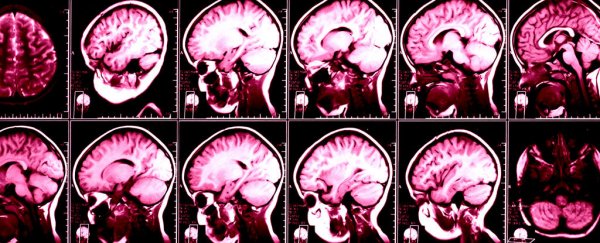The 1950s Japanese film Rashomon is famous for its exploration of the way people recall the same incident in different ways, but even outside of how we shape our recollections to suit our own personal narratives, it seems humans really do remember things differently.
For the first time, researchers have shown that the different ways people experience the past are associated with distinct brain connectivity patterns that may be inherent to each individual. These life-long 'memory traits' are the reason some people have richly detailed recollections (episodic memory) while others can recall facts but little detail (semantic memory).
"For decades, nearly all research on memory and brain function has treated people as the same, averaging across individuals," said Signy Sheldon, a psychologist now with McGill University in Canada.
"Yet as we know from experience and from comparing our recollection to others, peoples' memory traits vary. Our study shows that these memory traits correspond to stable differences in brain function, even when we are not asking people to perform memory tasks while in the scanner."
To investigate how people remember things differently, the researchers had 66 healthy young adult participants complete an online questionnaire describing how well they remembered autobiographical events and facts.
They also had their brains scanned so the researchers could investigate the activity in their medial temporal lobes, which are fundamentally involved with memory functions.
The findings, published in Cortex, showed that those who had richly detailed autobiographical memories demonstrated higher medial temporal lobe connectivity to regions at the back of the brain involved in visual processing.
In contrast, participants who mostly recalled events in a factual manner without much in the way of rich detail showed higher medial temporal lobe connectivity to areas at the front of the brain, which are involved in things like organisation and reasoning.
While the results will need to be replicated in larger studies, the implications of the research suggest that certain memory traits are protective, and may even one day help us delay the manifestation of age-related cognitive decline as people get older, due to the connections between memory recall and diseases that lead to dementia.
"With ageing and early dementia, one of the first things that people notice is difficulty retrieving the details of events. ," said one of the team, Brian Levine from the University of Toronto.
"People who are used to retrieving richly-detailed memories may be very sensitive to subtle memory changes as they age, whereas those who rely on a factual approach may prove to be more resistant to such changes."
The researchers are now conducting further study to see how people's memory styles are related to other facets of their personality, including things like depression and cognitive performance. It's amazing to think that how we recall the past could one day help to protect our future. We can't wait to see where this research leads.
